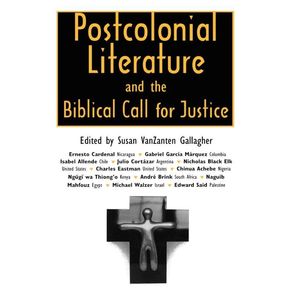Colonizers imposed Christianity and biblical codes upon their conquered subjects. In the waning of imperialism the newly emerging peoples employed these same biblical codes as their cries for freedom and justice as they drove out their former masters.
This collection of twelve essays exposes this tool of oppression as a tool of justice in works from Latin American, Native American, African, and Middle Eastern authors. Drawing on a variety of theological perspectives, including liberation theology, feminist theology, and the Reformed tradition, the contributors examine works by a number of international authors. Represented are works by Ernesto Cardenal (Nicaragua), Gabrial Garcia Marquez (Columbia), Isabel Allende (Chile), Julio Cartazar (Argentina), Nicholas Black Elk and Charles Eastman (United States), Chinua Achebe (Nigeria), Ngugi wa Thiong'o (Kenya), Andre Brink (South Africa), and Edward Said (Palestine), and others.
These writers from postcolonial lands express readings of individual biblical texts as well as theoretical discussion of such issues as the challenge biblical justice makes to poststructualism, the tensions in synthesizing Christianity and indigenous cultures, and the ethical dilemmas faced by writers opposing unjustice.
This collection serves as a celebration of the diversity of postcolonial literature.

